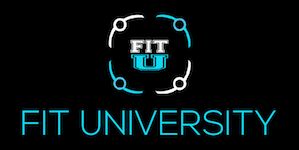The end of the semester is approaching, and so are due dates and exam dates. Sure, you could stop writing that paper and sleep an extra hour, or you could procrastinate and pull an all-nighter. Winter break is right around the corner, and you can just make up the sleep then, right? Not exactly.
Sleep is an important part of taking care of one’s body, and is even more important when considering the extra stress that exercise and school puts on it. In fact, getting enough sleep can be just as important as what you eat.
Sleep allows your nervous system to recharge and repair, improving physical recovery, learning and memory, and skill consolidation. So while staying up all night to study might seem like a good idea when you have to cram for an exam, you might actually retain more information if you turn off the lights and hit the hay.
Why is sleep important for fitness?
When you work out, your body enters a catabolic state- muscles are torn down and force to adapt to whatever stimulus you are presenting them with. We want out bodies to be in an anabolic state, which means it can repair and rebuild itself. When you sleep, anabolic hormones flood the body, and are maximized around the 9 hour mark. This surge of hormones is necessary to be fully recovered the next day.
Furthermore, on nights when you don’t sleep enough, you can accumulate “sleep debt”. This means that as you miss out on sleep, you’ll need to get increasingly more sleep to balance out the time lost. As Cheri Mah, a Stanford University sleep expert, put it, “You can go one full night [without sleep] and you’ll perform at the same level as someone who is legally intoxicated, but you can also perform at that same level if you’re just getting less sleep than you need over multiple days”. If you need more convincing than that, lets take a closer look at the biochemistry behind sleep and hormones.
What happens to my body when I don’t sleep enough?
Accumulated sleep loss elevates the amount of cortisol in the body, and too much cortisol can limit protein synthesis, raise blood sugar and blood pressure, lower immune system function, and cause fat storage. It stimulates muscles to break down by triggering proteins to get converted into glucose. Over time, this is detrimental to an athlete or anyone with serious fitness goals.
Ghrelin, a hormone that increases hunger, food intake, and fat production, also is increased when sleep levels are low. In addition to these two hormones increasing, growth hormone levels decrease on inadequate sleep. Growth hormone isn’t released until about 5 hours after falling asleep, and is necessary for bone and muscle repair. While these effects are drastic, the amount of sleep loss necessary to be significantly affected by these hormones would have to be rather large, so don’t freak out just yet.
Now that we know that sleep is a powerful fitness and mental tool, how can we add it to our fitness regimen?
The first step in creating any new habit is to plan ahead and make it a priority. If you can plan out your commitments ahead of time and stick to a schedule, getting at least 8 hours of sleep (if not more!) each night should not be too much of a stretch. Don’t wait until the weekend to give your body the rest and recovery it needs. It could be what you need to see better results, whether that’s in the gym, the classroom, or life in general.
Check out these articles too:

[…] The Importance of Sleep To Your Fitness Goals […]
[…] myself elsewhere. Sometimes that means going to the gym, and other times it just means taking a nap or hanging out with […]